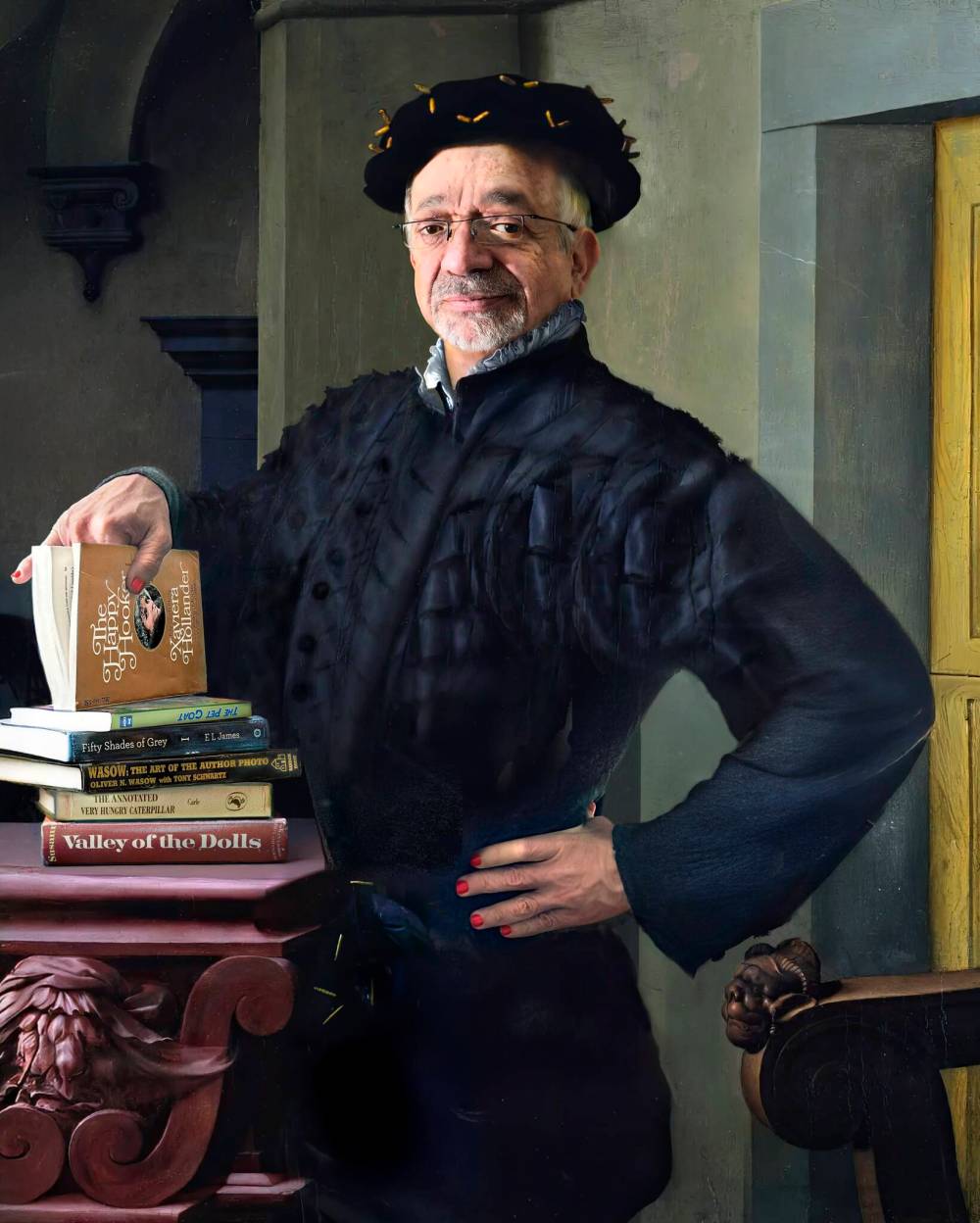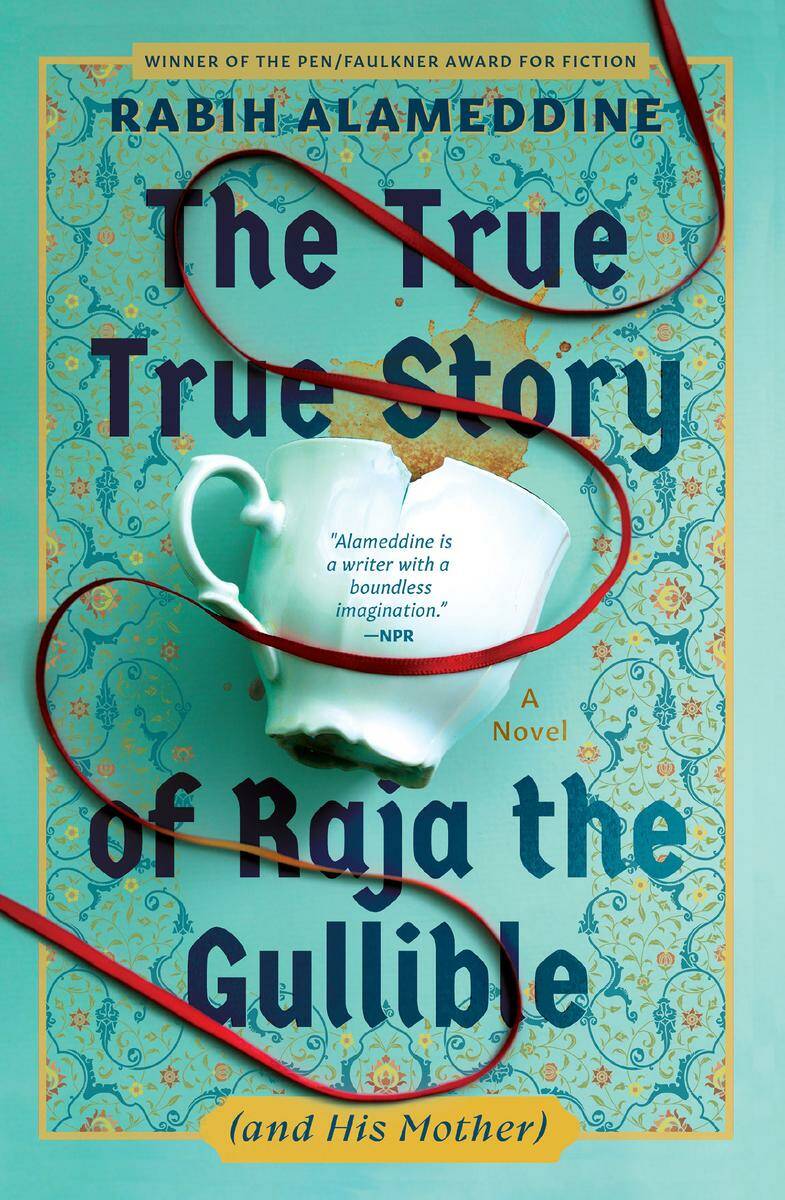Family matters
Lebanese mother and son’s account offers poignant, heartbreaking prose — with a healthy dose of riotous fun
Advertisement
Read this article for free:
or
Already have an account? Log in here »
To continue reading, please subscribe:
Monthly Digital Subscription
$1 per week for 24 weeks*
- Enjoy unlimited reading on winnipegfreepress.com
- Read the E-Edition, our digital replica newspaper
- Access News Break, our award-winning app
- Play interactive puzzles
*Billed as $4.00 plus GST every four weeks. After 24 weeks, price increases to the regular rate of $19.00 plus GST every four weeks. Offer available to new and qualified returning subscribers only. Cancel any time.
Monthly Digital Subscription
$4.75/week*
- Enjoy unlimited reading on winnipegfreepress.com
- Read the E-Edition, our digital replica newspaper
- Access News Break, our award-winning app
- Play interactive puzzles
*Billed as $19 plus GST every four weeks. Cancel any time.
To continue reading, please subscribe:
Add Winnipeg Free Press access to your Brandon Sun subscription for only
$1 for the first 4 weeks*
*$1 will be added to your next bill. After your 4 weeks access is complete your rate will increase by $0.00 a X percent off the regular rate.
Read unlimited articles for free today:
or
Already have an account? Log in here »
Rabih Alameddine returns to Beirut, Lebanon as the volatile, beloved setting and muse for his new novel, the enticingly titled The True True Story of Raja the Gullible (and His Mother).
This is the eighth work of fiction by the PEN/Faulkner Award-winning author of The Wrong End of the Telescope and the National Book Award finalist An Unnecessary Woman. (Alameddine has once again made the National Book Award long list for Raja the Gullible.)
The Jordan-born author and painter divides his time between the United States and Lebanon — or, according to his fun bio, between his living room and his bedroom. In 2025, he received the LGBTQ Bill Whitehead Award for Lifetime Achievement.

Oliver Wasow photo
The ebullience that runs through Rabih Alameddine’s new novel is matched only, perhaps, by his tremendous author photo.
Narrated in the voice of Raja, an irreverent, gay philosophy teacher, this contemporary tale spans the decades of Raja’s life into his 60s, as well as that of his unforgettable and equally irreverent octogenarian mother.
They live together in a Beirut apartment that houses a 16-seat family heirloom table that all but requires people to grease their butts in order to squeeze past it, along with cats Monet and Manet. He has a disappointing brother from whom he is estranged and a lesbian cousin, Nahed, who schools his mother on the topic of masturbation.
The story begins in the present (2023), then shifts around through different decades and key events, including Raja’s childhood, the Lebanese Civil War, the banking collapse of 2019, the port explosion of 2020 and the COVID-19 pandemic.
And though the civil war lasted many years, it is the two months at its very beginning, when Raja was a teenager, that take up great swaths of pages and detail, during which time Raja was locked away in a garage apartment, hidden from the outside world.
His captor is Boodie, a Kalashnikov-toting teenager caught up in the war, who brings Raja food and supplies — including a stray kitten named Mr. Cat — and in return Raja must teach Boodie how to dance. Their relationship becomes intimate and complex, laying the groundwork for a whopping good scene in the chapter called Virginia.
No discussion of this novel should fail to mention the fabulous and fearsome Madame Taweel, the Balenciaga mesh sneaker-sporting drug dealer who becomes best friends with Raja’s mother and rules the neighbourhood in which they reside.
As Raja puts it, “only my mother would find a mentor at eighty-two, let alone the most inappropriate one.” Their friendship is a riot, but poor Raja would prefer a quiet stillness to his days.
Raja the Gullible provides heartbreaking insight into “the injustice of living Lebanese” after the banking collapse and “the ignominy of living Lebanese” when the port explosion takes place. In its immediate aftermath, Raja whispers a famous boxer’s phrase from 40 years before — “no màs, no màs, no màs” — as he is overwhelmed with paralysis and grief: “How could one preserve grace in this age of relentless humiliation?”

The True True Story of Raja the Gullible
And though the novel bears witness to the indignities of the city of Beirut and its citizens, there is ebullience throughout this account, a devil-may-care delight in the act of telling.
The title itself — The True True Story of Raja the Gullible (and His Mother) — promises such fun. Is “true true” akin to a double negative and therefore a lie? If Raja — who taught himself Japanese, for crying out loud — is gullible, what does that make the reader?
And, last but not least, what would his mother have to say about being relegated to a parenthesis — she being the larger-than-life matriarch who would, in her words, break the world for her son?
The momentum the title creates never lets up, and Alameddine, through Raja, delivers a tragic yet exuberant tale steeped in the experience of living Lebanese.
Sara Harms is a Winnipeg editor.

